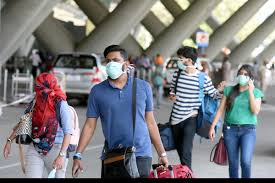
The novel coronavirus and Covid-19, the disease caused by it, are here to stay perhaps forever. There is no medicine to treat the disease at this point of time. A vaccine against the virus is in the process of trial. The world has its fingers crossed.
But governments have to function and find a way to keep economies running. This is what sustains the livelihood of people, whose life is at risk due to the raging novel coronavirus.
The Covid-19 outbreak has posed a difficult choice between life and livelihood. Until now, governments world over chose to protect life over livelihood by imposing lockdowns. Now, the focus is shifting to livelihood with the hope that hospitals save the lives at risk.
But how do we go about livelihood sustaining economy that includes jobs and travel. Who should travel? Who can be allowed to work in public? The touchstone test here is to find out who poses the least danger of spreading the infection and who is least vulnerable.
This brings the governments to the idea of an ‘immunity passport’, of some kind. Conversation around immunity passports got serious in the latter half of April, when the World Health Organisation (WHO) warned against the idea.
Still, some countries have actually gone ahead with the idea. China launched this “immunity passport” in February on an experimental basis with the help of tech giant Alibaba. By April, it had been implemented in most parts of China as the country lifted its lockdown.
To travel in China, one needs to have a favourable health code – a colour scheme. People have to fill in their personal information including name, phone number, passport number or national identity number, share health-related information, travel history, known contact with a coronavirus positive person and the like.
Leave a Reply